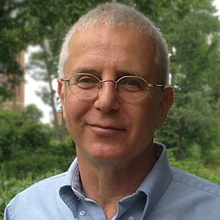 Eytan Ruppin, a professor of computer science in the Center for Bioinformatics and Computational Biology (CBCB), is co-lead of an international study on the molecular interactions between neurodegenerative diseases and cancer during aging.
Eytan Ruppin, a professor of computer science in the Center for Bioinformatics and Computational Biology (CBCB), is co-lead of an international study on the molecular interactions between neurodegenerative diseases and cancer during aging.
“Transcriptomic alterations during ageing reflect the shift from cancer to degenerative diseases in the elderly”—published today in Nature Communications—examines molecular alterations that occur as people get older.
Studies have shown that while death due to cancer is most prevalent among people in their 60s, cancer’s contribution to the total mortality rate declines at more advanced ages. Degenerative diseases such as heart failure, dementia or diabetes are on the rise for those over 70.
Ruppin, working with researchers from the Jena Centre for Systems Biology of Ageing (JenAge) and a second team at Kiel University led by Professor Christoph Kaleta, studied the molecular alterations that occur as people get older, comparing them to the molecular signatures of cancer and degenerative diseases.
The study involved the most comprehensive comparison of aging across species and tissues that has been undertaken to date. The scientists compared age-related changes in the activity of genes in humans, mice, the zebrafish Danio rerio and the short-lived killifish Nothobranchius furzeri across several organs. The researchers found many similarities in the molecular signatures of age-associated changes across all species.
Subsequently, the researchers compared the changes in gene activity with the signatures of age-specific diseases. Age-related changes in gene activity were aligned with changes observed in degenerative diseases. Strikingly, the aging-related changes showed a reverse trend compared to the changes observed with cancer.
“As the molecular signatures of cancer and degenerative disorders oppose each other in key cellular processes, it logically follows that the molecular alterations occurring later in life are not able to drive away both cancer and degenerative disorders at the same time,” Ruppin says. “Indeed, our results show that they are likely to be aligned to counteract the increased risk of cancer but, probably inevitably, the price might be an increased risk of a degenerative disease.”
Ruppin, a former professor of computer science and medicine at Tel-Aviv University, was director of CBCB from July 2014 to January 2018. He recently started a new position as chief of the newly founded Cancer Data Science Lab at the National Cancer Institute.